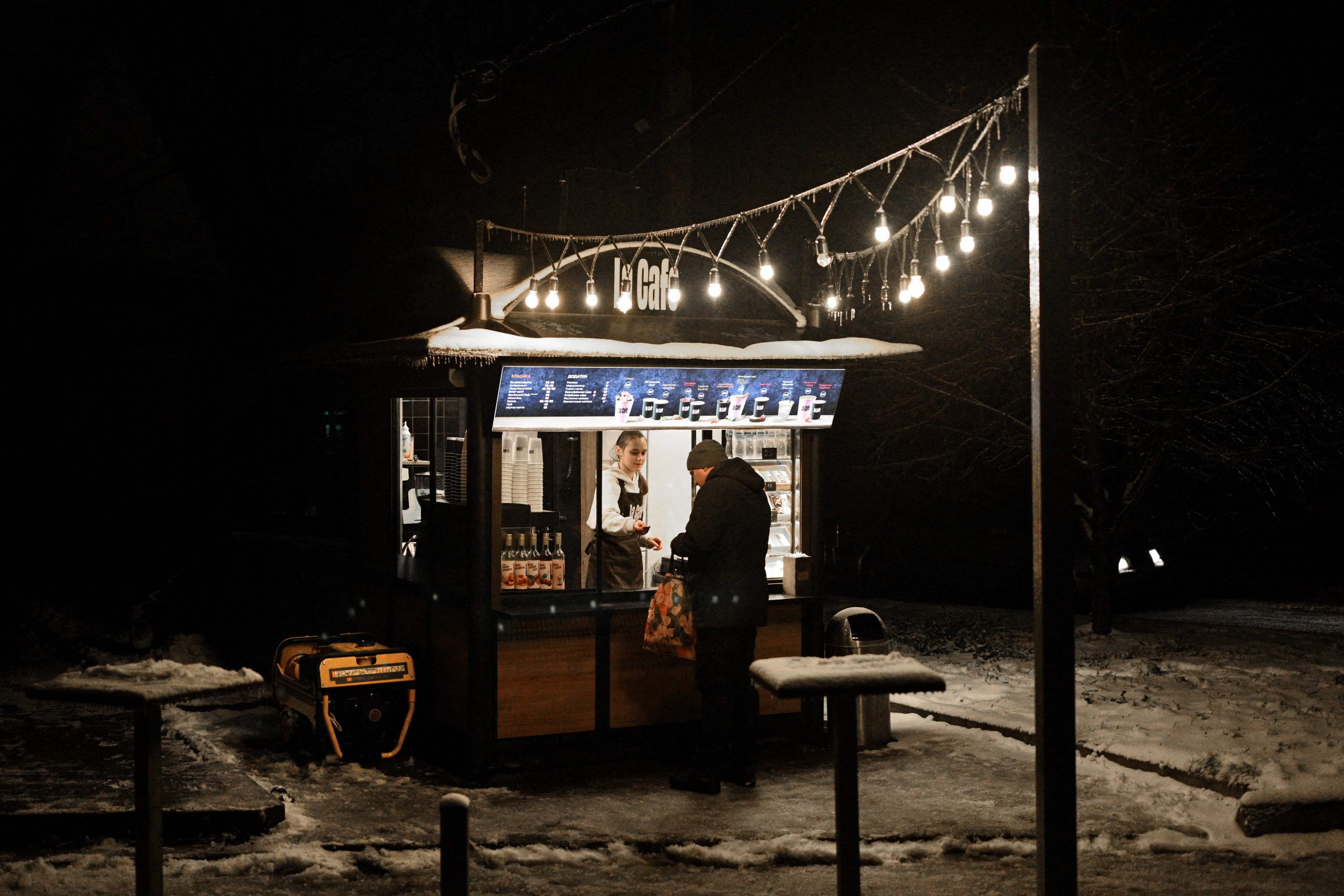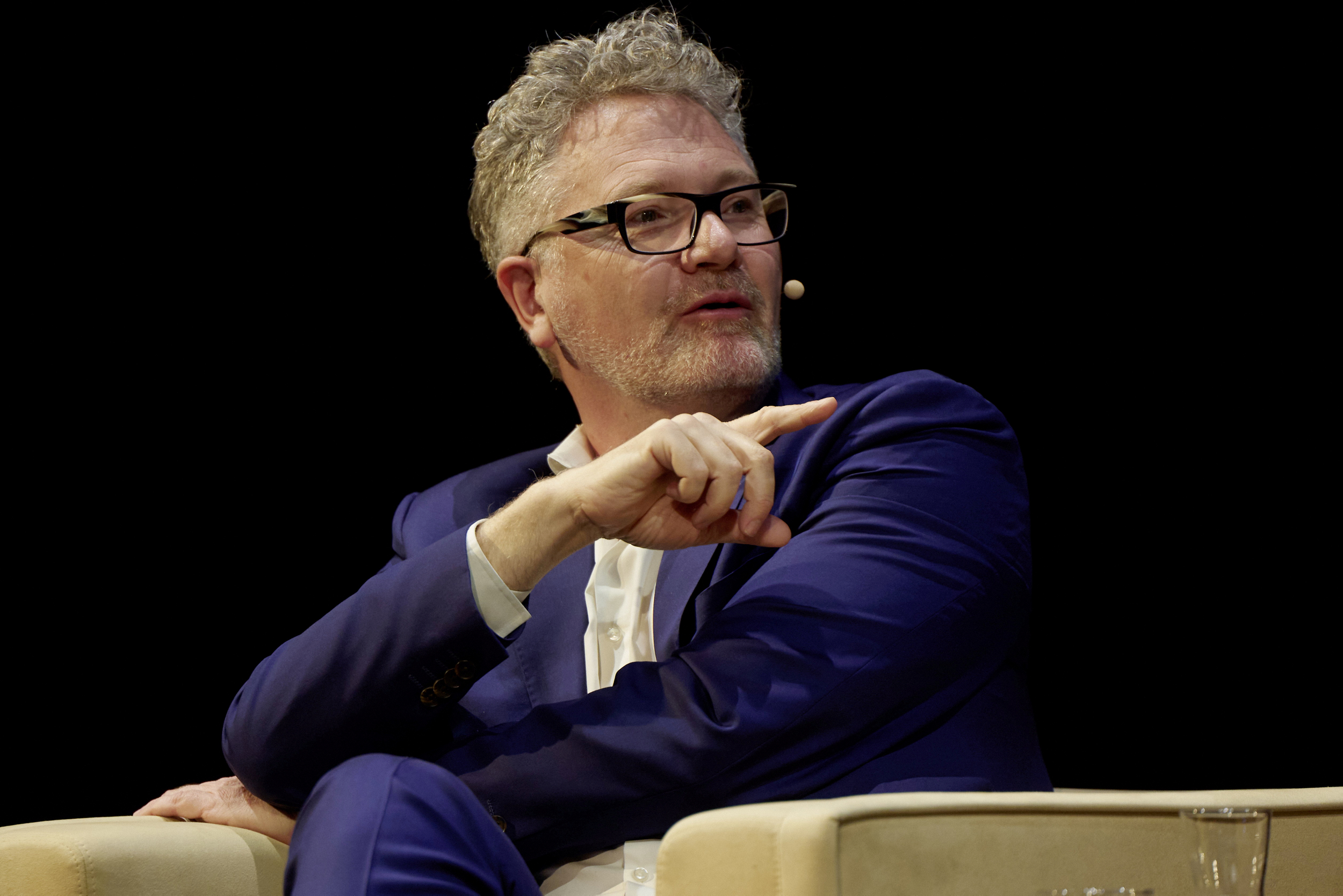26 January 2023
Originally published
12 January 2023
Source
It’s not enough to simply debate tank deliveries. If you want Ukraine to continue fighting, you have to stabilise the country economically and socially, says Adam Tooze. But the West shuns the Ukrainian state.
The Russian invasion of Ukraine has turned part of the economic world upside down. Europe is reorganising its energy market, and Russia has to deal with unprecedented sanctions. Ukraine is lamenting not only many dead but also unprecedented destruction of its economy.
You said at the beginning of the war that Europe’s economic decoupling from Russia would be painful for both sides. Almost a year later, the disengagement is well underway. Have there been any big surprises for you in the process?
The success with which Europe has forged ahead in the liquefied natural gas (LNG) market. Of course, Europe was very lucky because China was no longer a big LNG importer due to its zero Covid policy in 2022 and the weather in Europe was mild. But in a very short time, Germany in particular has managed to cut its gas consumption and find new sources of imports. In a way, this is a confirmation of the basic thesis that price changes can make a difference. But the crisis is not over. It would be very dangerous to think that.
Why?
The turbulence on the energy markets did not start with the war. Energy prices have since fallen back to the same level seen in 2021, but even then they were two to three times higher than during the ten years prior. That means we are still in an extraordinary situation. The fact that prices shot up as early as 2021 had nothing to do with any Russian strategy.
What caused it then?
It was the gas market. Demand was high, and China bought up a lot while the volumes on the LNG market were low. In 2022, Europe mainly drove the emerging economies in Asia out of the market, which did not get their LNG supplies at all. But if in the coming months it’s not Bangladesh, Pakistan or India that compete with Europe for available LNG – countries that cannot compete financially – but rather China, Japan and South Korea, then Europe may not be able to relax for long. One must always bear in mind that the LNG market is an Asian market, created for East Asian customers.
Besides Europe, hasn’t Russia also come through the crisis surprisingly well? Even though the West froze huge amounts of Russian assets and imposed comprehensive sanctions.
The bigger surprise was that the West resorted to these harsh sanctions. It’s not much of a surprise that Russia can continue to function as long as it sells large quantities of oil abroad and at even higher prices than before the crisis. The aim of the financial sanctions was to trigger a crisis. That worked; Russia’s financial markets were under significant pressure at first. But with competent management – and the Russians are extremely competent – those problems proved to be manageable. Russia had to decouple its financial system from the West. And they succeeded in doing that.
In your bookWages of Destruction: The Making and Breaking of the Nazi Economy, Penguin, London/New York 2006. about the Second World War, you argue that the Nazi regime was defeated because Germany was economically unable to keep up with the Allies. Does this factor also play a role in the current conflict? Russia’s economy is tiny compared to that of the West.
Comparing the capacities of individual countries makes sense when they are waging total war against each other. Then everything really depends on who has greater capacities. The only country that is running a total war economy right now is Ukraine, because it has no alternative. It is suffering from the situation; the situation is economically and socially distressing. Without Western aid, the country would not be viable. Other states are not running a total war effort, not even Russia.
What worries you most about Ukraine?
The rate of inflation is frightening, funding for the war is not secured. The Europeans and Americans have committed themselves to financial support. But the Ukrainians are anxious from month to month about what they will get. If one is really interested in continuing this war from the Ukrainian side, then one should think harder, beyond the question of whether to supply tanks or not, to how to stabilise the Ukrainian home front. This starts with supplying electricity but it goes further. The problem is that this is Ukraine’s weak point. When it comes to the state’s long-term financing, questions quickly arise about the role of the oligarchs in Kyiv and about corruption there.

A touch of normalcy at a coffee stand in the Ukrainian city of Lviv. A generator provides electricity. Russia has been continually attacking Ukraine’s energy infrastructure. Photo: Yuriy Dyachyshyn / AFP / picturedesk.com
That is not being discussed right now.
It has all been overshadowed by the heroic resistance of the Ukrainians. But only twelve months ago, the widespread view in the governments of Europe and America was that Ukraine was basically a failed political project, at least from an economic point of view. If you look at media reports at the end of 2021 on President Volodymyr Zelensky’s trip to Washington for a meeting at the International Monetary Fund, the critical tone of that time seems almost offensive today.
Is there a critical debate about this in Ukraine itself?
Yes. There is a Ukrainian left wing that gets little attention in the West. It has warned against the direction in which Ukraine’s current economic and social policy is developing.
What is their fear?
They fear that poverty among the population will become a threat. That the conditions of Ukrainian families will become unbearable, that the state will try to counteract the situation and sacrifice substantial parts of the welfare system to save the economy, and that the labour market will be completely deregulated in the name of flexibility. This policy has also been advocated by some Western experts who have many reservations about the Ukrainian state.
The US is strongly committed to Ukraine. Does Europe have the same goals as the US?
The US is not as committed as it is in order to defend democracy against autocracy. That is not the issue here. I say that not out of cynicism but because it’s simply unrealistic to imagine that’s what it’s about. Washington’s goal is a strategic weakening of Russia as a possible partner of China. That was not the policy President Joe Biden intended. The intention in the White House was actually to split Russia off from China. Biden wanted to try and restore relations with Moscow. Then Putin made his insane mistake and started the war. When it became clear that Ukrainian resistance was working and the Russians could not win easily, the decision-makers in Washington seized the opportunity and have since been using the war to weaken Russia strategically.

“In 2022, Europe mainly drove the emerging economies in Asia out of the market,” says Adam Tooze. Here at the discussion “Debating Europe” at the Burgtheater Vienna on 22 January 2023. Photo: Robert Newald / Der Standard
What consequences does this have for the EU?
The problem is that the EU is extremely divided between the traditional Paris-Berlin axis and the new EU members in Eastern Europe. It has always been clear that Berlin and Paris are pushing for a negotiated peace as quickly as possible. No one will say this outright because it is embarrassing in view of the brave resistance of the Ukrainians and the criminal aggressiveness of Russia. But it serves Germany’s and France’s interests, especially since from their point of view the important goal has already been reached: Russia has not won. The only problem is that America’s interest is different. But above all, they see it differently in Poland and the Baltic states, where there is a strong push for Russia not only not to win, but to suffer a real defeat. The EU countries in Scandinavia have also taken a tough stance.
Original in German. First published on 12 January 2023 in derstandard.at.
Translated into English by Douglas Fox.
This text is protected by copyright: © András Szigetvari / Der Standard. If you are interested in republication, please contact the editorial team. Copyright information on pictures, graphics and videos are noted directly at the illustrations or on top of the article. Cover picture: A building destroyed by bombs in Borodyanka on the outskirts of Kyiv. Photo: Andrew Kravchenko / AP / picturedesk.com
Debating Europe
This series of public morning debates brings leading politicians, scientists and intellectuals on to the stage of Vienna’s Burgtheater to discuss topical issues of political and social relevance.
This long-standing event is a collaborative production of the Institute for Human Sciences (IWM), Burgtheater, ERSTE Foundation and Austrian daily Der Standard.
